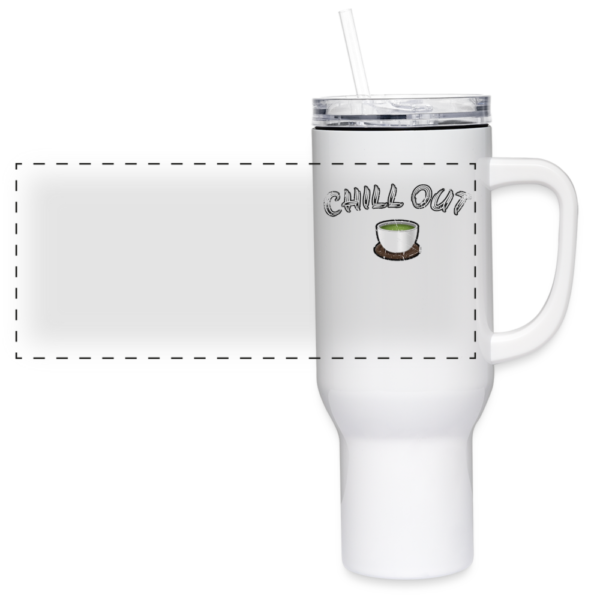
[This info is for entertainment purposes only, it is not advise] Staying hydrated is one of the simplest yet most powerful ways to improve overall health. But when it comes to water temperature, many wonder whether warm water or cold water is absorbed more quickly and effectively by the body. In this post, we dive into the science behind water absorption, discuss the effects of water temperature on digestion and metabolism, and provide practical tips on choosing the best water temperature for your needs. Read on to discover the truth behind this age-old debate and how you can optimize your hydration for better health!
Understanding Water Absorption in the Human Body
Water plays a vital role in nearly every bodily function—from regulating body temperature and maintaining joint lubrication to supporting digestion and nutrient transport. When you drink water, it doesn’t go straight into the bloodstream; instead, it is first absorbed through the walls of the stomach and intestines. The absorption rate can be influenced by several factors, including the temperature of the water, the state of your digestive system, and even the presence of food.
When water enters the stomach, it starts a journey through the gastrointestinal tract. This process involves various physiological responses that help to prepare the water for absorption. One important factor in this process is temperature, which can affect the rate at which the body processes and absorbs water. The temperature of the water you drink can trigger different reactions in the body, influencing both comfort and efficiency.
How Temperature Affects Digestion and Absorption
The temperature of the water you drink plays a crucial role in how your body handles it. Here’s a closer look at what happens when you consume warm water versus cold water:
Warm Water
- Faster Integration into the Body: Warm water is believed to be absorbed more quickly because it is closer to body temperature. The body doesn’t need to expend energy to heat it up, which means it can be readily absorbed once it reaches the stomach.
- Improved Digestion: Warm water can help relax the muscles in the gastrointestinal tract, which may promote smoother digestion. This effect can reduce bloating and aid in the breakdown of food particles, making it easier for nutrients to be absorbed.
- Enhanced Blood Circulation: Drinking warm water may help dilate blood vessels slightly, leading to improved circulation. Better circulation means that nutrients and oxygen are transported more efficiently throughout the body.
- Detoxification: Warm water is often associated with detox benefits. It can help stimulate the digestive system, promoting regular bowel movements and flushing out toxins that accumulate in the body.
Cold Water
- Cooling Effect: Cold water is refreshing and can help lower body temperature, which is particularly beneficial after strenuous exercise or during hot weather. The cooling effect can help reduce inflammation and muscle soreness.
- Potential Delayed Absorption: When you drink cold water, your body may take a few extra moments to warm it up to body temperature before absorption. This additional step could potentially slow down the absorption process slightly.
- Stimulated Metabolism: The body may work a little harder to warm up cold water, which can lead to a slight increase in metabolism. However, the energy expenditure is minimal and not a significant factor in overall calorie burn.
- Invigorating Sensation: Many people find that cold water provides an invigorating and refreshing sensation. This can be especially useful in the morning or during mid-day when a quick burst of energy is needed.
Which is Absorbed Quicker and Better: Warm Water or Cold Water?
When it comes to absorption, the primary consideration is how quickly the water can be utilized by the body for hydration and cellular processes. The science suggests that warm water may have a slight edge in terms of absorption speed for a few reasons:
- Temperature Alignment: Warm water is closer to the body’s natural internal temperature, which means that the digestive system doesn’t have to work as hard to adjust its temperature. This can lead to a more immediate absorption process.
- Digestive Ease: The soothing effect of warm water on the stomach muscles may facilitate faster movement of water into the intestines, where absorption predominantly occurs.
- Energy Conservation: Since the body doesn’t need to expend additional energy to warm the water, those calories can be allocated towards other metabolic processes, potentially making warm water a more efficient choice for hydration.
That said, the difference in absorption speed between warm and cold water may not be drastic enough to have a significant impact on overall hydration in everyday situations. The body is remarkably efficient at managing fluids, and both warm and cold water ultimately provide the hydration needed for optimal bodily function. However, the slight benefits of warm water can be particularly noticeable under certain conditions, such as after waking up or when experiencing digestive discomfort.
Exploring the Science Behind Water Temperature and Absorption
While many traditional health practices advocate for warm water due to its various benefits, modern research continues to explore how temperature influences water absorption. Some key points include:
- Gastrointestinal Response: Studies indicate that water temperature can affect the motility of the gastrointestinal tract. Warm water tends to relax the muscles, potentially facilitating a smoother flow of water into the small intestine where most absorption occurs.
- Hormonal Effects: The temperature of water may also have a subtle impact on the hormones that regulate digestion. For example, warm water might stimulate the release of digestive enzymes more effectively than cold water.
- Thermal Regulation: The body is naturally designed to maintain a stable internal temperature. When cold water is ingested, the body activates mechanisms to warm the water, which might delay its absorption marginally. In contrast, warm water is more readily accepted, requiring less thermal adjustment.
It is important to note that individual responses can vary. Factors such as overall health, age, and the presence of digestive conditions can influence how effectively your body absorbs water. For instance, people with sensitive digestive systems might experience more pronounced benefits from warm water, while athletes may prefer cold water for its refreshing properties post-workout.
Practical Tips for Optimizing Your Hydration
Whether you choose warm water or cold water, there are several strategies you can adopt to make sure you are staying optimally hydrated:
Morning Routine
Starting your day with a glass of warm water can kick-start your metabolism and help flush out toxins accumulated overnight. Consider adding a slice of lemon or a dash of ginger for an extra boost of flavor and digestive benefits.
During Meals
Sipping warm water during meals may help with digestion by promoting the breakdown of food. However, if you prefer cold water for its refreshing taste, try to avoid drinking large amounts immediately during a heavy meal as it might slightly slow the digestive process.
Post-Workout Hydration
After intense exercise, cold water can help lower your body temperature and reduce inflammation. The refreshing quality of cold water can also motivate you to drink more, ensuring that you rehydrate effectively after sweating.
Throughout the Day
Consistency is key for hydration. Alternate between warm and cold water depending on your mood, weather conditions, and activity levels. The most important factor is to ensure you are drinking enough water throughout the day to meet your body’s needs.
Special Considerations
If you have a sensitive stomach or specific digestive issues, warm water might be the gentler option. Conversely, if you are exercising in hot conditions, the cooling effect of cold water can provide immediate relief and help maintain performance.
The Role of Water Temperature in Overall Health
The benefits of choosing the right water temperature extend beyond just hydration. Here are some additional ways water temperature can influence your overall health:
Improved Circulation and Detoxification
Drinking warm water can stimulate blood flow and help the body’s natural detoxification processes. Improved circulation aids in the efficient transport of nutrients and oxygen, while enhanced detoxification supports a healthy immune system.
Stress Relief and Relaxation
Warm water has a calming effect on the body. It can help relax the muscles, reduce tension, and promote a sense of well-being. Incorporating warm water into your daily routine, especially before bed, may contribute to better sleep quality and stress management.
Metabolic Boost
Although the difference in energy expenditure between warming cold water and consuming warm water is minimal, every little bit counts. For some, the slight metabolic boost provided by cold water after exercise can be beneficial. However, warm water’s advantages in digestion and circulation often make it the preferred choice for overall metabolic health.
Digestive Health
Maintaining a healthy digestive system is crucial for overall well-being. Warm water can help soothe the digestive tract, reduce constipation, and support regular bowel movements. This can lead to better nutrient absorption and a healthier gut microbiome, which in turn affects immunity and energy levels.
Making the Choice: What’s Best for You?
Ultimately, the choice between warm water and cold water depends on your individual needs, preferences, and lifestyle. For those looking to optimize digestion, improve circulation, and enjoy a soothing, calming effect, warm water may be the ideal option. On the other hand, if you need a refreshing, cooling drink after intense physical activity, cold water can be the perfect choice.
Both types of water offer unique benefits, and there’s no one-size-fits-all answer. Listen to your body and experiment with different temperatures to see what works best for you. Remember, the most important factor is to keep drinking water regularly to stay hydrated and support overall health.
Final Thoughts
In summary, while warm water might be absorbed slightly faster and offer some additional benefits for digestion and circulation, both warm and cold water ultimately serve the essential purpose of hydration. The differences in absorption speed are relatively minor compared to the overall benefits of maintaining a consistent water intake. So, whether you prefer the comforting warmth of a hot beverage or the invigorating chill of a cold drink, what truly matters is that you keep your body well-hydrated and energized throughout the day.
We’d love to hear your thoughts on this topic! Do you have a preference for warm water or cold water? How does the temperature of your water affect your daily routine? Leave your comments below and share this post with your friends and family to spread the word about the importance of proper hydration!
Stay Connected!
If you found this post helpful, please hit the share button and let others in on these hydration secrets. Don’t forget to comment with your experiences or any additional tips you might have. Let’s build a community that values health, wellness, and the simple joys of staying hydrated every day!
Vintage Green Tea Chill Out Steam 40 oz Travel Tumbler
Vintage Green Tea Chill Out Steam 40 oz Travel Tumbler. Stay cool and chill with the ‘Vintage Green Tea Chill Out Steam’ 40 oz travel tumbler—your perfect companion for sipping serenity on the go!
320 in stock
------------------------------------------------
We use AI GPT Chatbots to help with our content and may get some things wrong.
-------------------------------------------------








Facebook Comments